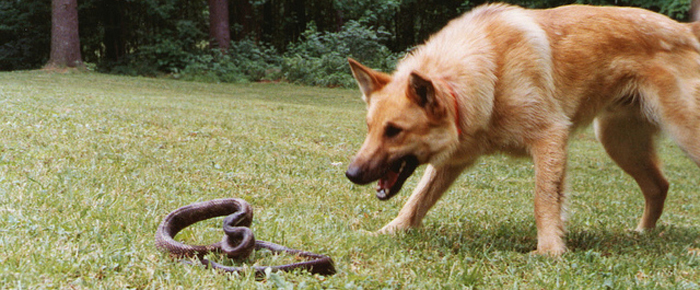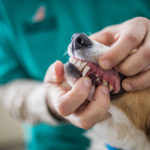There are already plenty of snakes about so we are asking our clients to be extra vigilant. Different species of snakes possess different types of venom and these can cause varying symptoms that appear anywhere from 15 minutes to 24 hours after a bite.
Early signs might include:
– Salivation
– Enlarged pupils
– Vomiting
– Hind limb weakness
– Rapid Breathing
– Depression
How you can help your pet survive a snake bite:
•Seek veterinary attention immediately, even if you only suspect your pet has been bitten. It is better that your pet is checked over rather than wait and be sorry
• If your pet has been bitten on the neck remove his collar
•Keep your pet quiet and still – this is critical to help reduce movement of the venom around the body
• Do not attempt treatment options such as cold packs, ice, tourniquets, alcohol, bleeding the wound or trying to suck out venom in place of getting your pet to the vet – they are a waste of precious time
NEVER attempt to kill, handle or capture the snake as you risk being bitten too.
Science is saving man’s best friend from deadly snake bites Australia is home to 10 of the most venomous snakes in the world and thousands of dogs are bitten each year in Australia.
Here is a list of the most dangerous, slimy, scales put out by National Geographic:
- Eastern Brown
- Western Brown
- Tiger snake
- Inland Taipan
- Coastal Taipan
- King Brown
- Red Bellied Black Snake
The number that die is set to reduce significantly thanks to a new antivenom developed by CSIRO.
Thankfully the number of people who die from snake bites has significantly reduced over the past few decades as medical expertise has advanced and antivenoms are more readily available.
Our pets however are still at risk as treatments can be expensive and not as effective as they could be. CSIRO scientists worked with Padula Serums Pty Ltd, a small biotech company in regional Victoria to produce an antivenom to treat Eastern Brown and Tiger snake bites.
Dr Andrew Padula of Padula Serums said that working with CSIRO helped turn his idea into a reality.
“I’ve been working on antivenom serums for dogs and cats for a while now but I really needed the expert equipment and skills of the CSIRO scientists to make the best product possible,” Dr Padula said.
Prof George Lovrecz from CSIRO’s manufacturing team explains that this new process is much more effective that those currently on the market because it is distilled and concentrated to create a pure, fully-tested antivenom which is ready to be injected into snake-bitten dogs.
“We used the latest technologies to make sure that the anti-venom is not only safe and effective but it’s also a lot cheaper to produce compared to existing products,” Prof Lovrecz said.
With this more effective and lower cost product, more dogs will be able to be saved from deadly snake bites.
Once final testing has been completed and the antivenom has been given approval for sale from the Australian Pesticides and Veterinary Medicines Authority it will be available on the market and stocked by vets around the country.
This new treatment could also have applications for treating humans for snake bites or against the toxins of paralysing ticks and CSIRO scientists are also researching the possibility of using a similar approach to treat other viruses like Ebola.






